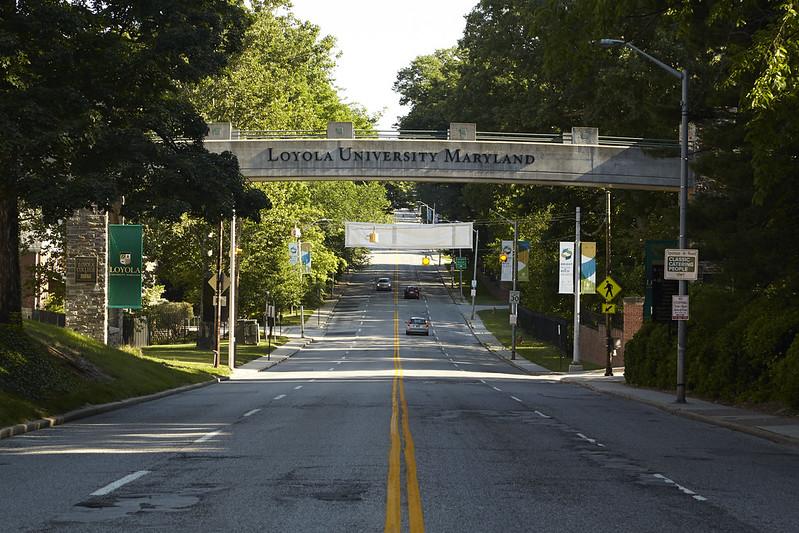A new survey conducted by Loyola administration shows the Jesuit University’s push towards a smoke-free Evergreen campus, and ultimately a stronger commitment to cura personalis.
The university sent out the five-question survey in Loyola Today, with the first post being Oct. 23, and posted it on the school website. The initiative is entitled LUNGS, which stands for “Loyola University Navigates Going Smoke-free.”
According to the initiative’s website, “The purpose of this initiative is to provide direction for a Smoke-Free Campus, reducing the health risks related to smoking and secondhand smoke for the campus community.”
According to Assistant Director of the Office of Student Support and Wellness Promotion (SSWP) Zachary Hitchens, this change has been a long time coming.
“The discussion about looking into becoming a smoke-free campus began last year and was the idea of students in partnership with the Student Health Center, Student Support and Wellness Promotion, and a number of other campus partners including the Rec Sports, and Student Athlete Support Services,” he said.
Hitchens stressed that our duty as a Jesuit institution is to care for the whole person, and these values have helped create the possibility of change. He said that Loyola currently follows the Maryland Clean Air Act, which prohibits smoking, including e-cigarettes and vapes, in buildings and campus vehicles. The act also states that people smoking must stay at least 30 feet away from buildings.
Hitchens said that the survey is designed in a way that allows many members of the community to voice their opinions about the matter, and that they are reading all concerns and comments.
“It is important to us to ensure that all members of the campus community have a voice in this process and our survey is one way of achieving that goal,” he said.
The new initiative has sparked varying reactions, concerns, and questions from students.
Henry DeCoste ’20 understands Loyola’s push for a stronger grasp of cura personalis.
“As a Jesuit institution, I believe the mission of the school is that they care about the entire formation of the person. As a school who cares about their students, clearly, cigarettes are something that are a negative substance to someone’s life,” he said.
Some students feel that the initiative is a positive step towards a healthier lifestyle for Greyhounds, yet still have questions about how the administration will deal with current smokers.
“I think it’s a great idea that the campus wants to transition into a smoke-free environment. The university only has our best interests in mind, especially when it comes to our students’ health,” Hannah Herrmann ’20 said. “I hope that if Loyola does become a smoke-free campus, they will provide assistance to the people who are affected by this new policy and those who are trying to quit smoking.”
Another question raised by students is the importance of enacting a smoke-free policy. Some argue that smoking at Loyola isn’t a pressing issue.
“I don’t see a terrible smoking problem at Loyola. I don’t think this is reasonable for the small percentage of people that do smoke,” said a student who wishes to be kept anonymous.
Kyle MacNeill ’20 feels the same way, as he doesn’t think that that smoking at Loyola is an “epidemic.”
“I don’t feel like there are a lot of students who go out and light up a cigarette, but I feel like those that do would be upset if they were told they had to leave campus,” he said.
MacNeill also thinks that pushing students off campus to smoke in Baltimore is a dangerous idea.
“I think there are good intentions in going smoke-free, but I don’t believe that it’s the correct response if there is a problem,” he said.
Michael Vitale ’20 said agrees with MacNeill and doesn’t believe there’s a need for this change.
“I think they should have smoking sections for people instead of just banning it completely off campus because people are going to smoke regardless,” he said.
Francois de La Garde ’20, who has smoked on campus in the past, agrees with these ideas.
“Usually college kids do what they aren’t allowed to do. It won’t change anything,” de La Garde said. “We don’t bother anyone. So, I don’t see how this is a problem.”
Although some students argue that smoking isn’t an issue on campus, some question how the administration can remove smoking rights completely.
“You can’t really punish somebody for doing something that’s not illegal because all college students are of age,” said Kate Sheerin ’20. “When authority tries to ban something, it usually creates more of a problem.”
Hitchens admits that this process will not be easy, but the university has resources to help struggling students.
“I think the hardest part will be to ensure that those members of our campus who do smoke do not feel excluded or that this is a campaign against them. We are also working to expand services to support those community members who do want to quit,” he said. “Students have free access to supportive counseling through the Office of Student Support and Wellness Promotion, and employees have access to supportive services through our insurance and employee assistance program.”
Hitchens said that if the new policy is approved, change will not happen immediately.
“We know that changing campus policy in a meaningful and inclusive way takes time,” he said. “It is also worth noting that if a smoke-free policy is approved by the university, there will be a period of time over which it is rolled out so that we can be thoughtful and supportive of those members of the campus community who do smoke during that time of transition.”

























































































































Anonymous • Nov 6, 2017 at 8:35 pm
5